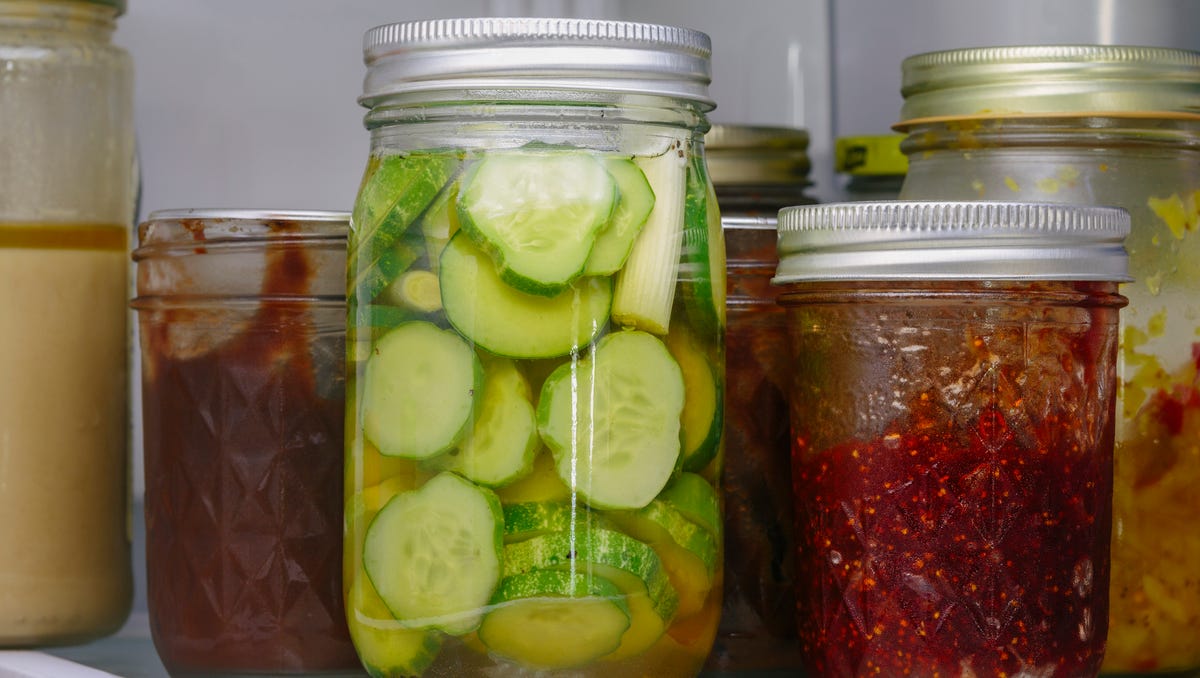Discover Why Pickles Are Healthier Than You Think
Pickles are a favorite topping for summer picnics, and their popularity is on the rise. The pickles and related products market was worth over $13 million in 2022, and forecasts suggest it could exceed $18 million by 2031.
Pickles are available in several varieties including dill, kosher, sweet, spicy, sour, Gherkin, cornichons, and bread and butter. “They enhance the flavor and provide a satisfying crunch to various dishes,” explains Leslie Bonci, a sports dietitian for the Kansas City Chiefs and the founder of Active Eating Advice.
Commonly, they are used as toppings for burgers, hot dogs, and deli sandwiches. They can also be found in numerous recipes such as pasta salads, chicken salads, potato salads, pickle bread, tartar sauce, dips, pickle butter, and notably, fried pickles. “Pickles are tasty on their own and make a fantastic addition to a cheese and charcuterie platter,” comments LeeAnn Weintraub, a registered dietitian and nutrition consultant from Los Angeles.
What Exactly Are Pickles?
Technically a fruit, since they originate from seed-bearing cucumbers, pickles are generally treated and classified as vegetables. According to Weintraub, they’re created by soaking cucumbers in a brine solution made from vinegar, salt, and spices, followed by fermentation.
The flavor of each pickle type is determined by the brine’s ingredients. Dill pickles, for instance, are steeped in a vinegar and dill brine. Sweet pickles follow the same process with added sugar, while bread and butter pickles are a variant incorporating ingredients like bell peppers, mustard seeds, or onions in the brine. Spicy pickles often feature additional spices or garlic.
Pickles like Gherkins and cornichons are made in a similar manner but are notable for being produced from younger, smaller cucumbers which make them perfect for spears or garnishing cocktails and charcuterie boards.
While cucumbers are the most recognized items for pickling, other foods are also commonly pickled, including green beans, beets, peppers, onions, zucchini, carrots, radishes, squash, turnips, and asparagus.
Are Pickles Healthy?
The health benefits of pickles largely depend on the ingredients in their brine, but generally, they are considered healthy and are often recommended by nutrition experts. “Cucumbers, from which pickles are made, are surprisingly nutritious for a fruit,” states Katherine Tallmadge, a nutrition author and registered dietitian at Personalized Nutrition.
According to the U.S. Department of Agriculture, cucumbers provide protein, dietary fiber, calcium, iron, magnesium, phosphorus, potassium, zinc, folate, and vitamin C. “Additionally, pickled cucumbers are a great source of cucurbitacins, known for their powerful antioxidant and anti-inflammatory properties,” adds Tallmadge.
They are also very low in calories, with an 8-inch cucumber containing just 45 calories, and have a water content of 96%, making them ideal for weight loss and maintenance, Tallmadge mentions.
Bonci highlights that pickles are rich in vitamin K and beta-carotene, which promote bone and immune health, minimize blood clotting, and protect cells. Many pickles are fermented, meaning “they can be good sources of probiotics that aid digestive health,” she notes. “Some athletes also swear by pickle juice to alleviate muscle cramps during workouts.”
Other nutritious ingredients found in some pickles, like peppers, dill, and onions, also contribute to their health benefits. “Also, vinegar, a key component in pickling, offers numerous health advantages,” Tallmadge explains. This includes its antibacterial and antioxidant properties, as well as its effectiveness in improving cholesterol and blood sugar levels.
Is it Okay to Eat Pickles Daily?
Despite their many benefits, there are some drawbacks to consider. “Individuals on low-sodium diets should be cautious about how many pickles they consume, as they can be quite salty,” Weintraub notes. This is partly due to naturally occurring sodium in cucumbers—over 6 milligrams in a single cucumber—but mostly from the added salt in the brine.
Excessive sodium can lead to high blood pressure and may increase the risk of kidney damage or heart disease.
Tallmadge advises that vinegar-based pickles have no significant downsides, but others should be eaten in moderation. For example, she mentions, “sweet pickles or bread and butter pickles might not just be high in sodium, but they can also be loaded with sugar and calories.”

